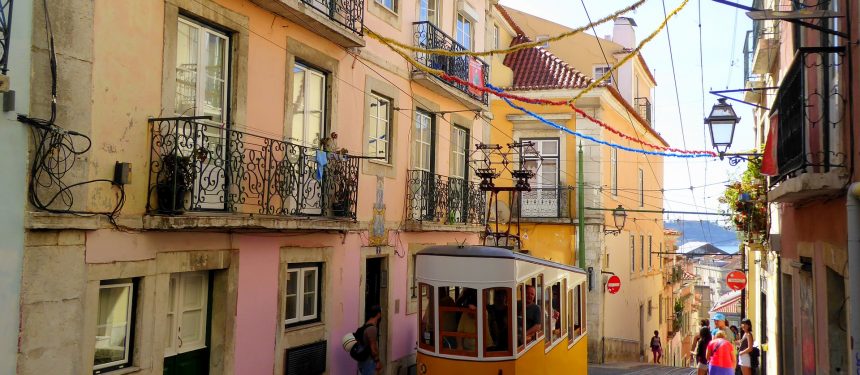A growing interest in studying abroad, ease of obtaining a visa and the absence of a language barrier have led to a boom of Brazilian students in Portuguese universities.
News and business analysis for Professionals in International Education
Have some pie!
Portugal sees Brazilian student boom, with more than 12,000 in higher ed
 Recent data showed that 12,200 Brazilians are enrolled in the Portuguese higher education system. Photo: Pixabay/LauraRinke
Recent data showed that 12,200 Brazilians are enrolled in the Portuguese higher education system. Photo: Pixabay/LauraRinke Recent data shared by the government showed that 12,200 Brazilians enrolled in the Portuguese higher education system in 2017, the most numerous nationality among 42,500 international students.
“In comparison to other countries, Portugal is still much cheaper”
In 2006, data showed 1,900 Brazilian students enrolled in Portugal, meaning numbers have grown by 540% over the last decade.
This was part of a general trend seeing Brazilian nationals moving to Portugal, as Foreign and Frontiers Service (SEF) reported there were 85,400 Brazilians living in the country in 2017, by far the biggest foreign community.
The Portuguese government has eased the student visa process with initiatives such as reducing compliance costs and using ICT to deliver better public services.
For Brazilian students, the process is even easier as more than 30 Portuguese universities accept the National Secondary School Examination (ENEM) for admission.
Research by Uniplaces, a service designed for students to book accommodation, shows Brazilians as the most numerous nationality, making up 15% of the international student body.
The total number of foreign nationals in Portugal has been increasing year after year, as well as the number of applicants for residency permits in the country – reaching 416,600 in 2017.
“It is much harder to be admitted [to] Brazilian universities than Portuguese ones. Public universities are not free of costs like in Brazil, but the fees are half of what would cost to study in Brazilian private universities,” said Laura Calasans, a graduate in Universidade Nova, in Lisbon.
“In comparison to other countries, Portugal is still much cheaper, as the cost of living is quite reasonable.”
There is a chance for students to pay even less for private education – as much as a Portuguese national – because of the Equality Treaty signed by both Brazilian and Portuguese governments.
The numbers are still going up despite cuts to educational programs funded by the Brazilian government such as Science Without Borders. Recently, the Brazilian government announced further budget cuts to the education system, a move which caused widespread protests all around the country.
“Whoever comes from Brazil to Portugal has the advantages of a country that operates a low social inequality, has access to the rest of Europe and is offered a better quality of life than in most Brazilian cities,” said Bruna Franceschini, a PhD student in Coimbra University.
Franceschini first arrived in Portugal as a master’s student in 2013 and has since noticed a profile change in Brazilian students: from applicants interested in masters and PhD to graduates driven by the personal goal of living abroad or to escape difficult times in Brazil.
However, waves of immigration are not met without resistance.
“It is much harder to be admitted [to] Brazilian universities than Portuguese ones”
At the end of April, Brazilian students found an insulting scene at the halls of Lisbon University: a gift shop was set up selling rocks. An explanatory sign said that the rocks were free to be thrown at ‘Zucas’ – a pejorative way of referring to ‘brazucas’ or Brazilians.
Speaking to the Brazilian news Consultor Juridico the dean of Lisbon University Carlos Brancos de Morais stated that the incident should not spoil the academic cooperation in the institution.
“There is an institute in the University focused on the cooperation with Brazil. We have research projects, PhD with shared tutelage, common collective work.
“I am sorry that cooperation built over years between students and professors of both countries might have been temporarily confused by the action of an irresponsible group,” said the dean.
Still looking? Find by category:


